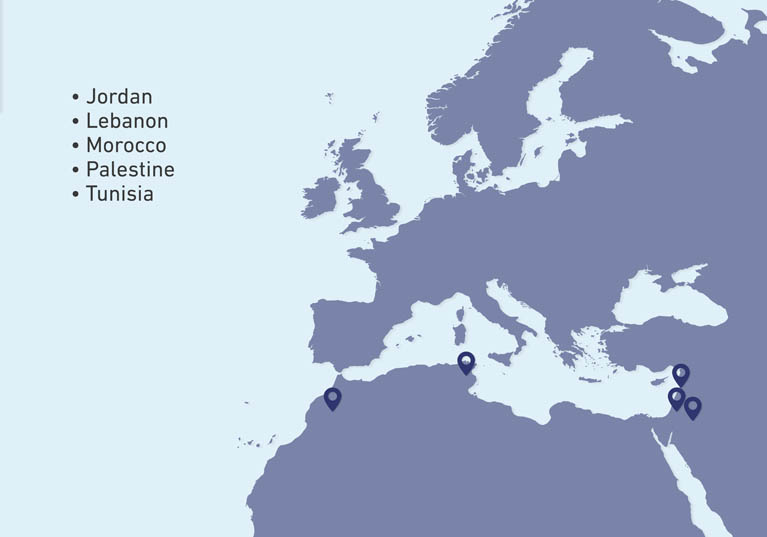
Capacity Building Programme on Water Integrity in the Middle East and North Africa
Context and objectives
The Capacity Building Programme on Water Integrity in the Middle East and North Africa aimed to help improve quality of life in the MENA region through sustainable water resource management.
Most countries in the MENA region are chronically water stressed, a situation exacerbated by the impacts of population growth and climate change. This water scarcity is made worse by a lack of good governance structures, low levels of trust between different parties sharing the same water resources, and limited institutional mechanisms for applying integrated water resource management principles in the region.
The project acted on various different levels:
– A regional level – increasing dialogue on how integrity, transparency, accountability and corruption can be addressed in water resource management.
– An inter-governmental level – raising awareness and fostering political dialogue on water integrity among approximately 60 high-level officials.
– A national level – increasing knowledge among 100 water officials about tools to improve information flow and communication channels between decision-makers.
– An operational level, improving the capacity of 100 mid-level water managers and other professionals to ensure integrity within their organisations.
– A local level – improving the ability of 100 local civil-society representatives to demand transparency.
Location

Key figures
Duration:
2014-18
Beneficiaries:
460+
Total cost:
€2.3M
Countries:
5
Promoter
The project was promoted by the Stockholm International Water Institute (SIWI), a policy institute based in Stockholm that generates knowledge and informs decision-makers on water-related issues. SIWI is making an in-kind contribution to the project.
Key partners
Beneficiaries
- 60 high-level decision makers
- 100 officials involved in water regulation, control, and planning (including the private sector)
- 100 mid-level water managers
- 100 farmers’ organisations, water-user associations, media professionals, students, women’s groups and other civil society actors
- National partners, universities and research centres
Key actions
Promoting stakeholder engagement and raising political support by connecting the programme with various political forums and processes.
Supporting the implementation of water integrity action plans.
Assessing water integrity risks in the region in order to identify the focus of the capacity building programme for each target group; preparing the related training materials.
Knowledge management and dissemination.
Implementing the capacity-building programme (including training of trainers; national water integrity training; alumni workshops, etc).
Results
Strengthened regional dialogue on how integrity, transparency, accountability and corruption can be addressed in water resource management.
Raised awareness and political dialogue about water integrity at an inter-governmental level.
Increased knowledge about tools to improve communication among decision-makers at different governance levels.
Increased capacity among mid-level water managers and other professionals to ensure integrity within their organisations.
Improved capacity of local leaders and civil-society actors to demand transparency and accountability in the management of water resources and services.
